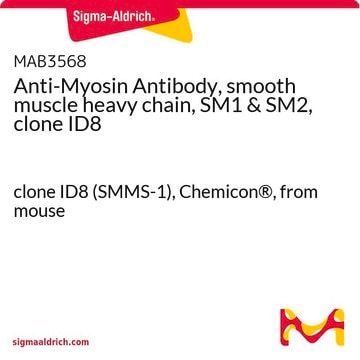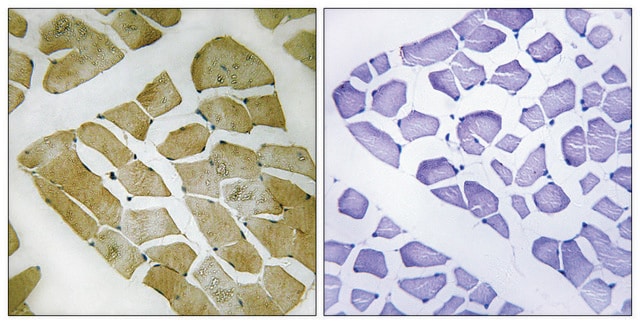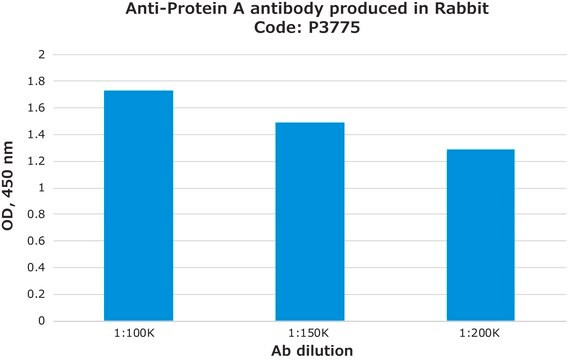MABT847
Anti-MYH-4 Antibody, clone 2G72F10
clone 2G72F10, from rat
Synonym(s):
Myosin-4, Myosin heavy chain 2b, MyHC-2b, Myosin heavy chain 4
About This Item
Recommended Products
biological source
rat
antibody form
purified antibody
antibody product type
primary antibodies
clone
2G72F10, monoclonal
species reactivity
mouse, rat
packaging
antibody small pack of 25 μg
technique(s)
immunofluorescence: suitable
immunohistochemistry: suitable (paraffin)
western blot: suitable
isotype
IgG1κ
NCBI accession no.
UniProt accession no.
target post-translational modification
unmodified
Gene Information
mouse ... Myh4(17884)
General description
Specificity
Immunogen
Application
Western Blotting Analysis: A representative lot detected MYH-4 in Western Blotting applications (Sawano, S., et. al. (2016). PLoS One. 11(11):e0166080).
Immunofluorescence Analysis: A representative lot detected MYH-4 in Immunofluorescence applications (Sawano, S., et. al. (2016). PLoS One. 11(11):e0166080).
Immunohistochemistry Analysis: A 1:25 dilution from a representative lot detected MYH-4 in mouse heart and mouse skeletal muscle tissues.
Cell Structure
Quality
Western Blotting Analysis: 1 µg/mL of this antibody detected MYH-4 in mouse soleus muscle tissue lysate.
Target description
Physical form
Storage and Stability
Other Notes
Disclaimer
Not finding the right product?
Try our Product Selector Tool.
Certificates of Analysis (COA)
Search for Certificates of Analysis (COA) by entering the products Lot/Batch Number. Lot and Batch Numbers can be found on a product’s label following the words ‘Lot’ or ‘Batch’.
Already Own This Product?
Find documentation for the products that you have recently purchased in the Document Library.
Our team of scientists has experience in all areas of research including Life Science, Material Science, Chemical Synthesis, Chromatography, Analytical and many others.
Contact Technical Service








